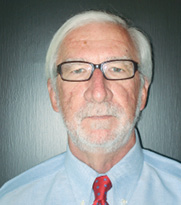While my last column focused on “Dominating the Market” by utilizing the principles of Sun Tzu’s The Art of War, this column will address similar precepts necessary to initiating a winnable strategy to not only dominate a market but also win a prolonged war of attrition.
As Sun Tzu wrote over 2,000 years ago, “Now an army may be likened to water, for just as flowing water avoids the heights and hastens to the lowlands, so an army avoids strength and strikes weakness.” Dealers interested in capturing a market would be wise to heed those words and to attack a competitor’s weaknesses by capitalizing on their own strengths while simultaneously overcoming their own weaknesses. As Sun Tzu goes on to write:
“Know the enemy and know yourself: in a hundred battles you will never be in peril.
When you are ignorant of the enemy but know yourself, your chances of winning or losing are equal.
If ignorant both of your enemy and of yourself, you are certain in every battle to be in peril.”
Rather than going toe-to-toe with a competitor’s strength, a wise dealer bent on marketing rather than selling would seek to exploit his competitor’s weaknesses. One way of doing this is by assessing one’s own meaningful competitive advantage and then assessing the various competitors’ strengths and weaknesses using the same objective tool.
Historically, dealers and manufacturers in the equipment industry have used price as their primary marketing tool to combat a competitor’s strength. This is akin to winning the battle while losing the war. The following year, the purchaser invariably goes back to where he was previously buying to see if that original seller would once again give the purchaser the opportunity to buy from him. Under this scenario, market share may increase, but profitability will surely suffer.
Similarly, I’m intrigued by dealers who work out of an “out-house,” have a reputation for offering poor product support or retain employees who are “mad at the world.” When they go up against the competition, what in the world do they have to sell other than price? On the other hand, the competition should be exploiting these dealership weaknesses by going after their few remaining customers offering all the attributes that are presently missing in that “dealership of choice.”
Looking back over time, nobody effectuated a meaningful competitive advantage strategy better than Richard A. (Dick) Brown at DMI during the decade of the ‘90s and again at Krause from 2002 until his retirement in 2013. Competing against the captains of commerce, DMI, a shortline manufacturer of tillage equipment, was able to grow market share profitably every year from the late 1980s until their profitable sale to CNH in 2001.
Rather than focus on price as their primary weapon of choice, Dick Brown focused on his competitors’ weaknesses. After improving on the overall quality of the product, which was actually the easier undertaking, he then turned his attention to his retail channel of distribution.
Starting with his field force, Dick established a training program that was superior to any other training program in the industry. As a former vice president of sales and marketing at the soon to be defunct Massey Ferguson of Des Moines, Iowa, he was critically aware of how important the field force could be. He also knew how underutilized they were in the retail sales transaction because of the historically perceived “wholesale only” selling disease that afflicted many sales representatives employed by the major manufacturers.
After implementing an intensive training program for his field force that focused not only on the quality of the DMI product, but also on the competitors’ product weaknesses, Dick then initiated a similar training program for the retail sales representatives employed by his dealer network. Throughout the training program, he emphasized that while order takers sold on price, field marketers and sales consultants sold value such as “proven yield increases.”
After the sale of DMI to CNH, Dick moved on as president of Krause Co. where he duplicated his successful marketing strategy and once again saw market share and profitability increase dramatically for a company that was once looking into the financial abyss. At both companies, rather than formulate a strategy based on competitive imitation, Dick forged a differentiated strategy based on a meaningful competitive advantage. He knew that while imitation “may be the highest form of flattery, it was also the lowest form of strategy.”
To successfully capture a market, whether a manufacturer or a dealer, you should forgo following your competitor’s strategy. If you try to be someone else, the best you can be is second best.
As Sun Tzu wrote, “one defends when his strength is inadequate: he attacks when it is abundant.” Developing a strategy based on attacking your competitors weaknesses while concomitantly capitalizing on your meaningful competitive advantage will enable you to be victorious in this war of attrition.







